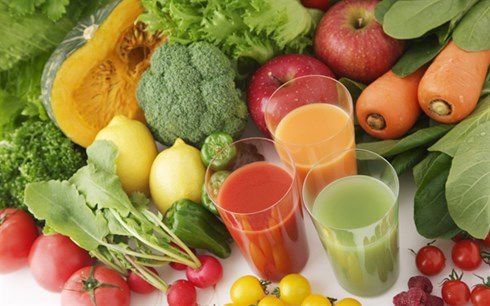What kind of diet should pregnant mothers follow?
Nutrition during pregnancy is not only about quantity, but also about providing all the necessary nutrients.
These substances will ensure the mother's health and at the same time build the baby's organs such as the central nervous system, heart, liver, lungs, digestive system, respiratory system, circulatory system and urinary system...
 |
Proper nutrition
Pregnant women need to eat a variety of foods. They should eat many meals to meet their nutritional needs. Each meal should include an extra bowl of rice (with food) compared to when they were not pregnant. Good quality rice should be chosen, not too polished to avoid losing vitamin B1. Tubers and tubers have little protein, so they should only be eaten as an addition, not as a replacement for a main meal.
You should eat foods rich in protein: meat, fish, shrimp, crab, eggs, milk and beans... If possible, you should drink 2-3 cups of milk every day (each cup is about 200ml). You should use vegetable oil and eat in moderation.
Eat plenty of fresh fruits and vegetables every day, especially dark green leafy vegetables and deep orange fruits and vegetables. Sweeteners should be consumed in moderation. Use iodized salt in food preparation and cooking. Limit alcoholic beverages (wine, beer) as much as possible, and do not drink strong coffee or tea.
Some notes
Depending on the stage of pregnancy, the mother needs to have a suitable diet. However, during pregnancy, the mother has some of the following notes:
If in the early stages of pregnancy you feel morning sickness, nausea, vomiting due to fear of food taste, you need to divide your meals into smaller portions. Your diet should be low in fat and high in carbohydrates to supplement protein, energy, minerals, vitamins and electrolytes.
In the later stages of pregnancy, due to the enlarged uterus creating pressure on the stomach along with the relaxation of the esophageal sphincter, digestive juices can easily flow back into the esophagus, causing heartburn. This symptom can be reduced by eating small meals and not lying down immediately after eating.
After the 20th week of pregnancy, if not properly nourished, pregnant women are susceptible to gestational diabetes. To prevent the disease, pregnant women need to eat enough, monitor blood sugar regularly, keep blood sugar levels stable, and prevent the depletion of nutritional reserves. Foods high in cholesterol should be limited and sugar intake should be minimized.
In the late stages of pregnancy, due to reduced intestinal motility, women are less physically active, and the enlarged uterus presses on the colon, pregnant women are prone to constipation and hemorrhoids. These symptoms can be reduced when pregnant women eat more fiber-rich foods and fruits, and drink plenty of water./.
According to Health and Life
| RELATED NEWS |
|---|

